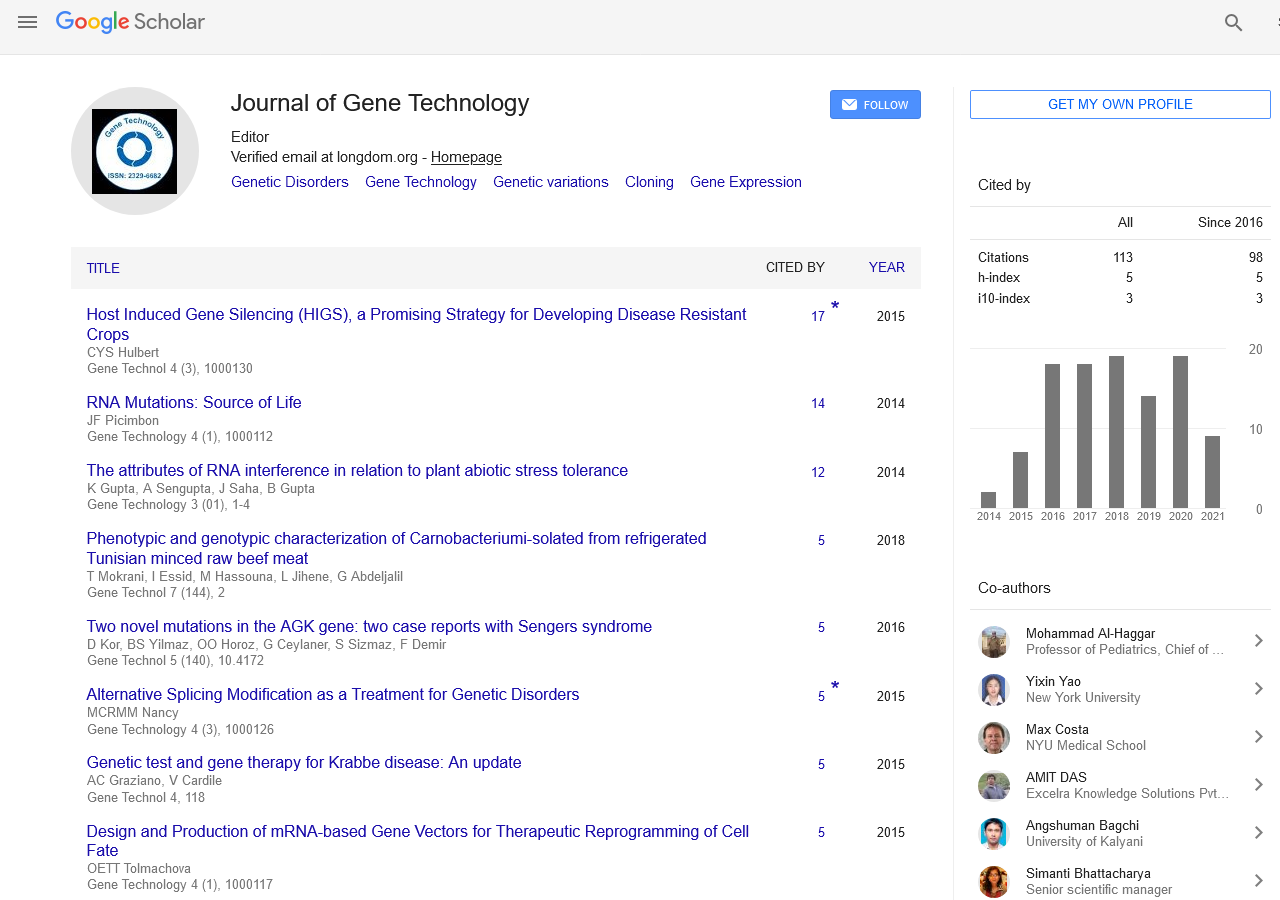PMC/PubMed Indexed Articles
Indexed In
- Academic Keys
- ResearchBible
- CiteFactor
- Access to Global Online Research in Agriculture (AGORA)
- RefSeek
- Hamdard University
- EBSCO A-Z
- OCLC- WorldCat
- Publons
- Euro Pub
- Google Scholar
Useful Links
Share This Page
Journal Flyer

Open Access Journals
- Agri and Aquaculture
- Biochemistry
- Bioinformatics & Systems Biology
- Business & Management
- Chemistry
- Clinical Sciences
- Engineering
- Food & Nutrition
- General Science
- Genetics & Molecular Biology
- Immunology & Microbiology
- Medical Sciences
- Neuroscience & Psychology
- Nursing & Health Care
- Pharmaceutical Sciences
Abstract
Bruton's Tyrosine Kinase: Structure and Functions, Expression and Mutations
Ying Liu, Guang-biao Zhou, Bo Zhang and Yong-qiang Liu
Bruton’s tyrosine kinase (BTK), a member of the Tec family of protein tyrosine kinases (PTKs), plays a vital and diverse function in many cellular processes. BTK is expressed throughout B cell development, widely participating in multiple signal pathways including PI3K, PLCγ, and PKC. Those pathways play critical functions in cell proliferation, development, differentiation, survival, and apoptosis. The expression of BTK is selectively down-regulated in T lymphocytes and plasma cells and the relative level of BTK expression may be modulated in different developmental populations of B cells. Mutations in the gene for BTK are responsible for X-linked agammaglobulinemia (XLA) in human and X-inked immunodeficiency (xid) in mice. Both of these diseases are characterized by blocks in B-cell development at multiple stages and impaired function of residual mature B cells. To date, more than 1252 mutations have been identified in human BTK gene associating with XLA. Targeting BTK has achieved remarkable efficacy in B cell malignancies, multiple myeloma and related bone disease. The present review discusses the recent data regarding the role of BTK in B cell development and its structure, regulation, functions, expression and mutations.


